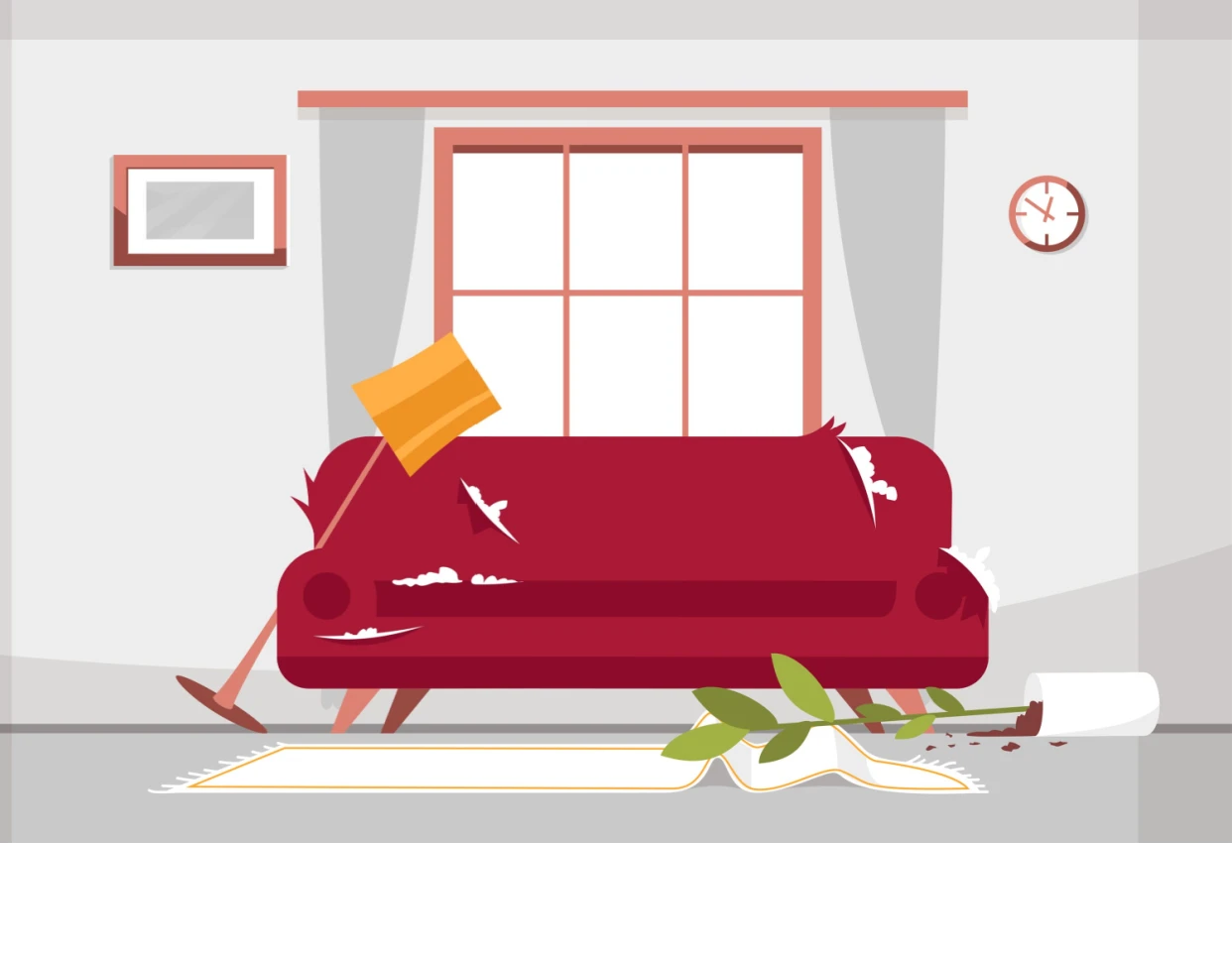How to Keep Good Tenants Longer

Tenant Retention Strategies
If you’re managing rental properties and feel like your leasing efforts are stuck on repeat, you’re not alone. High turnover is costly—not just in dollars but in time, energy, and team morale. That’s why tenant retention strategies are one of the smartest levers a property management company can pull to boost profitability and long-term success.
In this guide, we’ll break down actionable strategies rooted in systems, service, and staffing—so you can keep more of the tenants you love.
Why Tenant Retention Matters in Property Management
Tenant retention directly impacts your NOI. Every time a resident moves out, you’re looking at marketing costs, vacancy loss, turnover repairs, and staff coordination—not to mention the stress. Keeping good tenants longer means:
-
Lower vacancy rates
-
Fewer maintenance surges
-
Higher cash flow predictability
-
Better online reviews and referrals
Improving retention also reduces pressure on your team. Instead of being stuck in an endless leasing loop, your staff can focus on quality service, relationship-building, and improving property performance.
What Is a Good Tenant Retention Rate?
For property managers, a tenant retention rate between 65–75% is considered strong. But more important than industry averages is the trend in your own portfolio. If your renewal rate is declining—or tenants say they love your team but still leave—something’s broken in your system.
You can also analyze retention by asset class, geography, or property manager. Understanding your baseline gives you a benchmark to measure improvements from operational changes.
1. Offer a Resident Benefits Package
Modern tenants expect more than just four walls. A resident benefits package (RBP) can include filter delivery, identity protection, late fee forgiveness, or rewards programs. These packages not only increase retention but also create new revenue streams.
We recommend partners like Second Nature that integrate seamlessly into your workflows and provide built-in value for both owners and tenants.
2. Respond to Maintenance Requests Promptly
Maintenance is one of the top drivers of tenant dissatisfaction. Whether it’s a dripping faucet or a broken HVAC, responsiveness shows you care. Build SOPs that empower your team—or your RTMs—to respond quickly, communicate clearly, and follow up after completion.
Use property management software like PropertyMeld or AppFolio to track requests, timestamp completions, and automate tenant notifications.
3. Incorporate a Renter’s Insurance Program
Not only does renter’s insurance protect your business and tenants—it also signals professionalism and helps resolve disputes faster. Encourage (or require) insurance at lease signing, and offer easy enrollment through your leasing platform.
It’s a simple way to avoid future headaches and position your company as organized and trustworthy.
Screen Your Tenant Today!
Gain peace of mind with AAOA’s credit, criminal, and eviction reports.
4. Focus on Security and Peace of Mind
Security is emotional and practical. When tenants feel unsafe, they leave. Invest in smart locks, video doorbells, improved lighting, and emergency signage. Conduct occasional safety audits and make results part of your owner reporting.
You can also communicate safety protocols clearly via email and digital portals to create reassurance.
5. Provide Lease Renewal Incentives
Sometimes a small gift or upgraded appliance is all it takes to secure another 12 months. Tenants want to feel appreciated—not just managed. Popular incentives include:
-
$50–$100 rent credit
-
Gift cards
-
Free carpet cleaning or smart home upgrades
-
Renewal anniversary messages with a bonus
Even better? Offer flexible lease terms based on tenant needs. Flexibility can lead to longevity.
6. Offer Group Rate Internet or Utilities
Partner with internet or utility providers to give tenants exclusive rates. It’s a win-win: they save money, and you add another stickiness factor to your properties.
Tenants often prioritize cost predictability. Group rates bundled with their rent make renewals feel like the easy—and smart—choice.
7. Implement a Resident Rewards System
Reward tenants who pay rent on time or refer friends. Loyalty apps or even a quarterly gift card drawing can go a long way in turning tenants into long-term brand advocates.
8. Conduct Regular Property Inspections
Inspections aren’t just for move-outs. Proactive walkthroughs show tenants you care, help you catch issues early, and reinforce accountability. Send friendly reminders before inspections and offer easy digital scheduling.
Use these check-ins to reinforce rules, build relationships, and ensure units are being well-maintained.
9. Update and Renovate Thoughtfully
Retention isn’t just about communication—sometimes the unit itself needs a little love. Small upgrades can dramatically improve tenant satisfaction:
-
New cabinet hardware
-
Modern light fixtures
-
Accent wall paint
-
USB wall outlets
Offer optional updates for longer leases. Create a menu of upgrade choices for high-value residents.
10. Provide On-Demand Pest Control
Proactive pest control is one of those invisible perks that tenants value more than they vocalize. Partner with local vendors who offer:
-
Monthly treatments
-
Emergency call-outs
-
Text scheduling or booking
RTMs can manage vendor coordination and tenant follow-up so your PMs can stay focused on ops.
11. Include Filter Delivery and Other Value-Add Services
Air quality and HVAC performance are deeply connected to tenant satisfaction. Filter delivery is a win for everyone—it reduces maintenance costs and improves the living experience.
Bundle this into your RBP or offer it as an add-on with marketing flair (“Stay Breathe-Easy Certified!”). It’s one of the best low-cost, high-value additions we recommend.
12. Simplify the Move-In Process with a Concierge
Move-ins are make-or-break moments. If things go poorly, tenants start looking elsewhere months before their lease ends. Build a concierge experience with:
-
Digital welcome packet
-
Move-in checklist
-
RTM welcome call
-
Automated rent reminders and maintenance instructions
Get the move-in right, and tenants are more likely to stay past year one.
13. Leverage Digital Tools for Convenience
Use tech to automate rent reminders, enable mobile payments, and simplify work order requests. Modern tenants expect self-serve options.
Integrate your systems so RTMs or your in-house team can manage communications and tracking in one place.
Examples:
-
AI chatbots for FAQs
-
Text-to-pay portals
-
Maintenance ticket escalation tracking
14. Thoroughly Vet Tenants During Screening
Retention starts with the right match. Strong screening processes ensure:
-
Financial stability
-
Alignment on communication style
-
Expectations about noise, pets, cleanliness
15. Act on Tenant Feedback
Surveys don’t retain tenants—action does. Send post-maintenance surveys or biannual satisfaction surveys and actually update SOPs based on trends.
Create a feedback loop:
-
Ask
-
Analyze
-
Act
-
Follow up with “We heard you!” messages
RTMs can be trained to help run this system consistently.
16. Build Strong Tenant-Manager Relationships
People stay where they feel seen. Simple ways to strengthen relationships include:
-
Personalized birthday/holiday messages
-
Quarterly check-ins (can be automated or RTM-run)
-
Fast, respectful communication—especially when delivering bad news
If your tenants see your company as caring and competent, they’re more likely to renew—even if your competitors offer lower rent.
How to Measure Tenant Retention
Use this formula:
Tenant Retention Rate = (Number of tenants who renewed / Number of tenants eligible for renewal) x 100
Track quarterly. Segment by:
-
Property type
-
Portfolio manager
-
Region
-
Lease term
Review renewal reports alongside maintenance satisfaction scores and lease complaints to spot patterns.
How to Improve Your Tenant Retention Rate
Improving tenant retention doesn’t come down to gimmicks—it’s about building a system that’s proactive, communicative, and supportive.
-
Build retention SOPs for RTMs to run
-
Automate renewal reminders and check-ins
-
Set up onboarding and move-out surveys
-
Fix communication gaps that lead to churn
Key Takeaways: Tenant Retention That Scales With You
-
Tenant retention drives profitability. Lease renewals are your most cost-effective growth lever.
-
Systems win over spontaneity. Follow-up workflows, RTM support, and SOPs reduce risk of missed opportunities.
-
Technology makes it easier. From chatbots to automated reminders, convenience increases satisfaction.
-
Tenant relationships are your secret weapon. Communication, transparency, and trust go further than most perks.
Source: BetterWho















 Accessibility
Accessibility